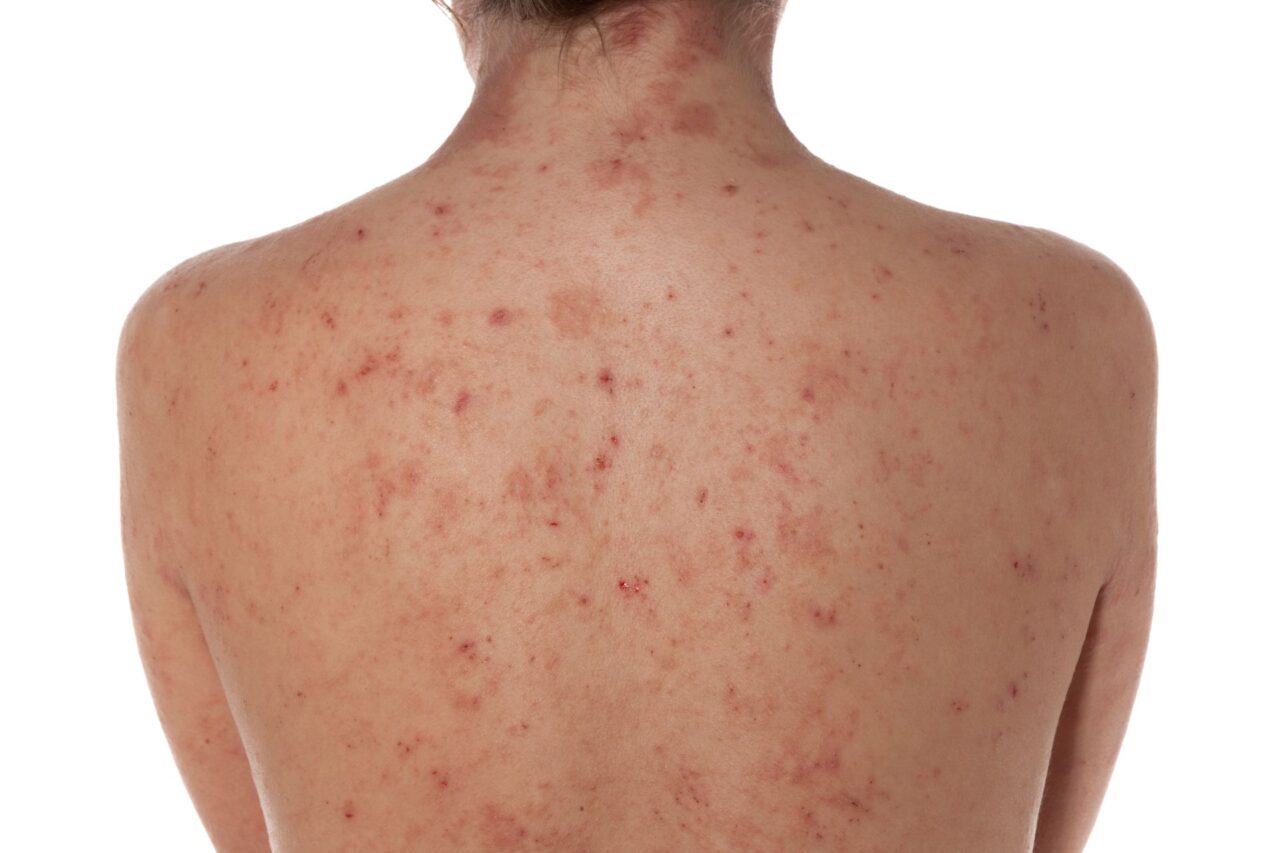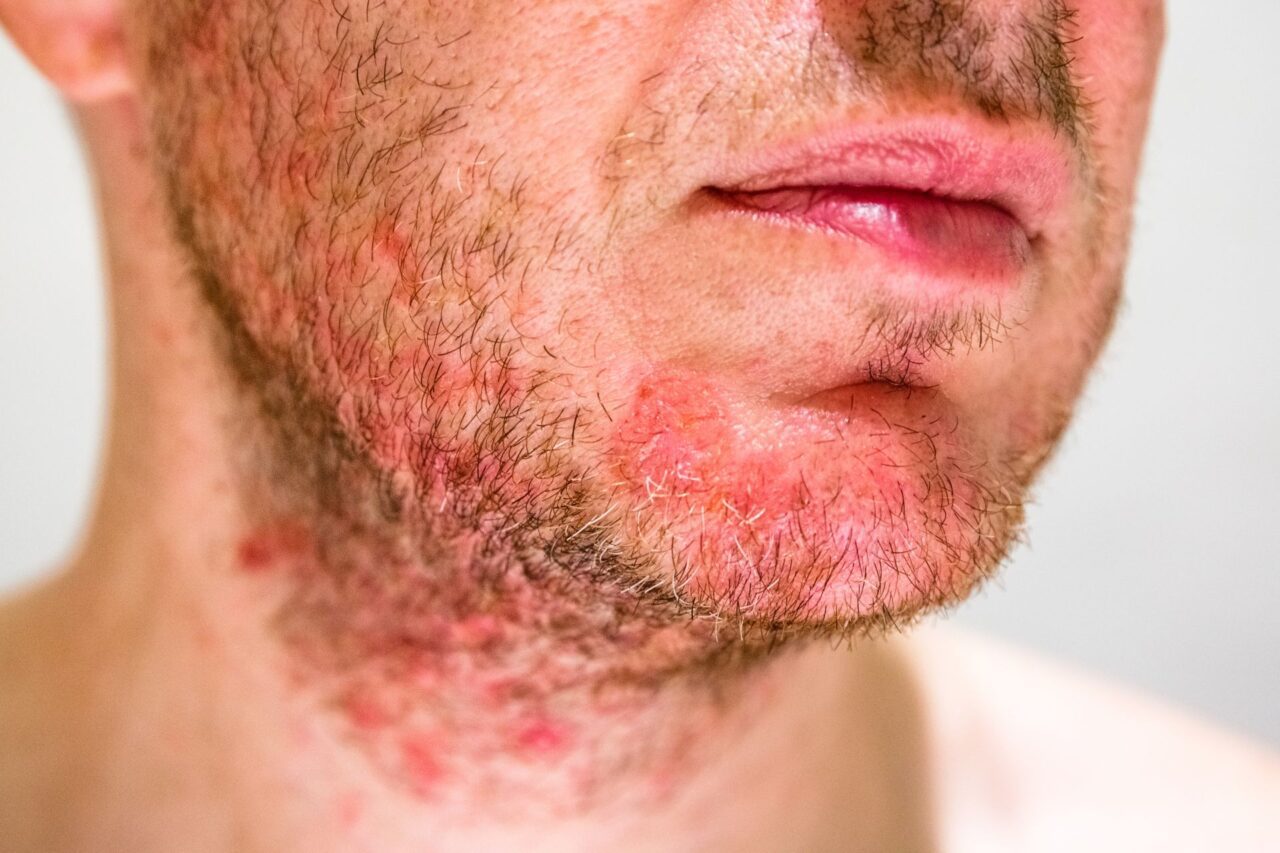Introduction
Welcome to our in-depth guide on Spotting Dermatitis Herpetiformis: A Guide to Symptoms. Dermatitis Herpetiformis, often abbreviated as DH, is a skin condition associated with celiac disease. Recognizing its symptoms is crucial for early diagnosis and management. In this article, we will delve into the world of Dermatitis Herpetiformis, offering expert insights, personal experiences, and answers to frequently asked questions. By the end of this guide, you’ll be well-equipped to spot the signs of Dermatitis Herpetiformis and seek appropriate medical care.

Understanding Dermatitis Herpetiformis
Dermatitis Herpetiformis, often referred to as “DH,” is a rare autoimmune skin disorder closely linked to celiac disease. It is characterized by intensely itchy, blistering skin rashes. Here’s what you need to know:
What is Dermatitis Herpetiformis?
Dermatitis Herpetiformis is a chronic skin condition characterized by the presence of intensely itchy, blistering skin lesions. While it primarily affects the skin, it is considered the cutaneous manifestation of celiac disease, a gluten-sensitive autoimmune disorder.
Spotting Dermatitis Herpetiformis: A Guide to Symptoms
Spotting Dermatitis Herpetiformis: A Guide to Symptoms is crucial for early diagnosis and management. Here, we outline the most common signs and symptoms of DH:
- Itchy Skin Eruptions
- One of the hallmark symptoms of DH is the presence of extremely itchy skin eruptions. These can appear as red, raised bumps or blisters.
- Grouped Blisters
- DH lesions typically appear in groups or clusters, often symmetrically distributed on the elbows, knees, buttocks, and back.
- Burning Sensation
- Alongside itching, individuals with DH may experience a burning or stinging sensation in the affected areas.
- Intestinal Symptoms
- While primarily a skin condition, some individuals with DH may also experience gastrointestinal symptoms like abdominal pain, diarrhea, or bloating.
- Skin Rash Triggers
- Identifying triggers for the skin rash is essential. DH eruptions are known to worsen after gluten consumption.

Living with Dermatitis Herpetiformis
Living with Dermatitis Herpetiformis can be challenging, but with proper management, individuals can lead a fulfilling life. Here are some insights into coping with DH:
Dietary Changes
- Gluten-Free Diet
- The most effective treatment for DH is a strict gluten-free diet. Eliminating gluten from your diet can lead to a significant improvement in skin symptoms.
- Consult a Dietitian
- Working with a dietitian experienced in celiac disease can help you navigate the complexities of gluten-free eating.
Medications
- Dapsone
- In some cases, dermatologists may prescribe medications like dapsone to alleviate itching and control the skin rash.
- Corticosteroids
- Topical corticosteroid creams can be used to reduce inflammation and itching.
FAQs
Q: Can Dermatitis Herpetiformis occur without celiac disease?
A: Dermatitis Herpetiformis is strongly associated with celiac disease, but in rare cases, it can occur independently.
Q: Is self-diagnosis of DH advisable?
A: No, it’s essential to consult a healthcare professional for a proper diagnosis.
Q: Are there any complications associated with DH?
A: Without treatment, DH can lead to scarring and skin discoloration.
Q: Can children develop Dermatitis Herpetiformis?
A: Yes, DH can affect individuals of all ages, including children.
Q: Is DH contagious?
A: No, Dermatitis Herpetiformis is not contagious. It is an autoimmune condition.
Q: Are there any support groups for DH patients?
A: Yes, there are online and in-person support groups where DH patients can connect and share their experiences.
Conclusion
In conclusion, Spotting Dermatitis Herpetiformis: A Guide to Symptoms is essential for anyone seeking to understand this challenging skin condition. By recognizing the signs and symptoms early and adopting a gluten-free lifestyle, individuals with DH can effectively manage their condition and enjoy a better quality of life. If you suspect you have Dermatitis Herpetiformis, consult a healthcare professional for a proper diagnosis and treatment plan.





